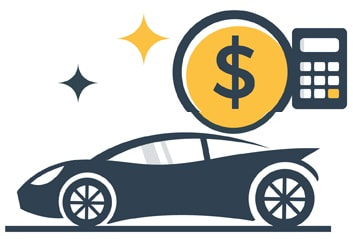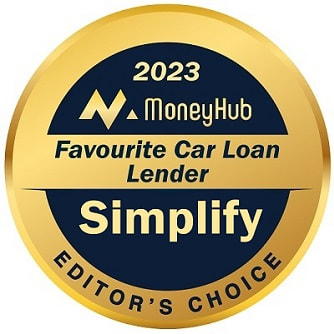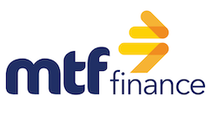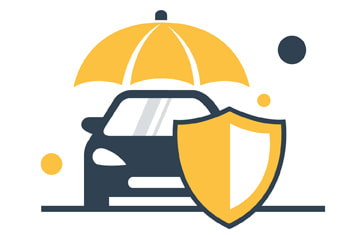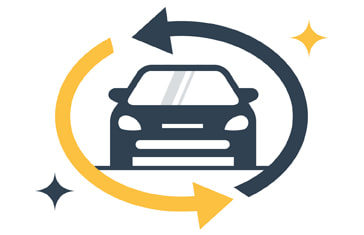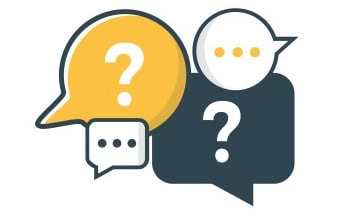Paying Cash for a Car vs Car Finance
We explain the pros and cons of paying cash for a car vs financing and making ongoing repayments
Updated 22 July 2024
Know this first:
Our guide covers:
Our view is simple:
- Buying a car is exciting yet expensive. If you have the cash upfront and can avoid financing, should you or is financing a better option? There is a lot to consider.
- Today it seems like many people finance – we don't think it's right for everyone as interest rates and repayments can be crippling. Before you make any decision, understand the total costs you'll repay.
- Like most personal finance decisions, there isn't a one-size-fits-all answer. But when you weigh the pros and cons of each option, you'll figure out what works for you.
Our guide covers:
- Paying Cash For a Car – What You Need to Know
- Buying a Car with Finance – What You Need To Know
- Paying Cash for a Car vs Car Finance - Frequently Asked Questions
Our view is simple:
- Before visiting any dealer, consider getting a quote from a specialist lender or a bank. Lenders will assess your affordability and pre-approve you, so you know exactly what your budget is before you go car hunting. You can then assess this based on whether you prefer financing or allocate your savings to buying the car debt free.
- If you prefer to work with the dealer directly to arrange finance, keep in mind that every fee is negotiable and you will, almost certainly, pay more than you would have you dealt with the underlying lender directly. There is one exception - deals and discounted financing offered by a manufacturer.
- Examples include Toyota Finance, Mazda Finance and Honda Finance, among others. Such offers still, in most cases, charge fees, including an 'Establishment Fee' and ongoing monthly 'Administration Fee'.
|
Christopher Walsh
MoneyHub Founder |
MoneyHub's Top Car Finance Options - Avoid high interest rates and fees with trusted lenders.
Our Top Trusted and Affordable Car Lenders Committed to Fast Quotes:
|
Paying Cash For a Car – What You Need to Know
Paying cash for a car means no car payments, which is arguably a smart choice financially as you'll avoid paying interest on borrowed money. The price you pay for the car is all the car costs you until it needs maintenance, gas, and repairs. Unfortunately, most people don't have enough money to pay for a decent car upfront, which for most drivers ranges from around $5,000 (small Japanese used import) to anything as high as $40,000 (used sedan or ute etc.)
If you pay cash upfront but don't have the budget, it can mean buying an inexpensive (old, used) car and hoping for the best. In some situations, you may end up with an unsafe or unreliable car, all to avoid financing.
Before deciding, look at how much money you have and what it will get you. Using common sense, you'll determine which option works best. If you have the cash, there are benefits you'll earn.
The Benefits of Paying a Car in Cash:
1. Pay no interest – When you borrow money, you pay interest or charges to borrow the money. This increases the total cost of the car. While it may only increase your monthly payment slightly, it can increase the total cost of the car by thousands of dollars.
2. You won't get upside down on your loan – If you owe more on the car than it's worth, you're upside down. If you sell the car (or total it), you may owe the bank more money than you receive from selling it or making an insurance claim.
3. You'll stick to your budget – It's easy to buy the best and brightest car when you can finance it. If the salesperson shows you features you can't resist, you may add them on, going over your budget without realizing it because the monthly payment remains short.
If you pay cash upfront but don't have the budget, it can mean buying an inexpensive (old, used) car and hoping for the best. In some situations, you may end up with an unsafe or unreliable car, all to avoid financing.
Before deciding, look at how much money you have and what it will get you. Using common sense, you'll determine which option works best. If you have the cash, there are benefits you'll earn.
The Benefits of Paying a Car in Cash:
1. Pay no interest – When you borrow money, you pay interest or charges to borrow the money. This increases the total cost of the car. While it may only increase your monthly payment slightly, it can increase the total cost of the car by thousands of dollars.
2. You won't get upside down on your loan – If you owe more on the car than it's worth, you're upside down. If you sell the car (or total it), you may owe the bank more money than you receive from selling it or making an insurance claim.
3. You'll stick to your budget – It's easy to buy the best and brightest car when you can finance it. If the salesperson shows you features you can't resist, you may add them on, going over your budget without realizing it because the monthly payment remains short.
Buying a Car with Finance – What You Need To Know
When you buy a car with finance, you may put a little of your money down, but you borrow the rest. Usually, you borrow from a bank, but you can get car financing in a few ways, including:
Buying a car with finance means you don't have to wait to get the car – if you're approved for financing, you can drive the car off the lot today. But, it also means you're driving off the lot with new debt which needs to be repaid. This can be in the form of a car payment, higher mortgage payment, or higher personal loan payment. Whatever it is, you'll need to budget for it and manage the repayments.
Know This: Each loan is different, but they all have one thing in common – interest charges. You always pay interest on a car loan. The one exception is 0% interest deals from the dealership, which are rare but do exist. However, such offers are usually only for a limited period of time and the dealership (usually) makes up for the interest charges they won't receive by increasing the price of the car.
When you finance a car, the lender has security over it, just like a bank has over your home when you have a mortgage. This means if you sell the car, your first obligation is to pay back the lender. You won't get any of the proceeds until you pay the loan in full. It also means if you default on the loan (don't pay it), the lender can take possession of the car and sell it to make their money back.
If you add the cost of the car to your mortgage, there's even more at risk – your house. Since all mortgages use the house as collateral, you could lose your house if you default on your payments. If you add the cost of the car to your mortgage, make sure you can afford the repayments. Interest rate increases mean your monthly outgoing costs may be higher than you expect; you need to be able to keep up if this is the case.
Top Tip: If you don't pay more than the minimum amount required, you'll stretch out the cost of the car over many more years than a traditional car payment. The longer you take to pay the money back, the more interest it will cost you.
- Securing a loan a lender a dealer works with (i.e. dealer financing)
- Securing a car loan from a specialist lender or bank
- Add the cost of the car to your mortgage
- Add the cost of the car to a personal loan
Buying a car with finance means you don't have to wait to get the car – if you're approved for financing, you can drive the car off the lot today. But, it also means you're driving off the lot with new debt which needs to be repaid. This can be in the form of a car payment, higher mortgage payment, or higher personal loan payment. Whatever it is, you'll need to budget for it and manage the repayments.
Know This: Each loan is different, but they all have one thing in common – interest charges. You always pay interest on a car loan. The one exception is 0% interest deals from the dealership, which are rare but do exist. However, such offers are usually only for a limited period of time and the dealership (usually) makes up for the interest charges they won't receive by increasing the price of the car.
When you finance a car, the lender has security over it, just like a bank has over your home when you have a mortgage. This means if you sell the car, your first obligation is to pay back the lender. You won't get any of the proceeds until you pay the loan in full. It also means if you default on the loan (don't pay it), the lender can take possession of the car and sell it to make their money back.
If you add the cost of the car to your mortgage, there's even more at risk – your house. Since all mortgages use the house as collateral, you could lose your house if you default on your payments. If you add the cost of the car to your mortgage, make sure you can afford the repayments. Interest rate increases mean your monthly outgoing costs may be higher than you expect; you need to be able to keep up if this is the case.
Top Tip: If you don't pay more than the minimum amount required, you'll stretch out the cost of the car over many more years than a traditional car payment. The longer you take to pay the money back, the more interest it will cost you.
The Benefits of Buying a Car with Finance
Like buying a car with cash, there are benefits of buying a car with finance, including:
1. You won't deplete your savings
2. You won't have an opportunity cost
3. You may get a special deal
1. You won't deplete your savings
- Buying a car with cash means coming up with a large sum of money to pay for the car. When you finance, you only need a small down payment, and sometimes, if you trade-in your car, you won't have to put any cash down.
- This leaves you with more money in your bank account for emergencies, including car repairs or home repairs.
2. You won't have an opportunity cost
- When you pay for a car in cash, you put all your money in a 'sinking investment.' Cars depreciate; they don't appreciate like homes or shares. If you put all your money in your car, you lose the opportunity to invest elsewhere and potentially earn more money.
3. You may get a special deal
- Dealerships like car buyers who can comfortably make repayments and may reward them with special incentives. If the incentives outweigh the interest costs, it may be a good option.
- Common offers include cashback rebates or special financing options (just watch the total cost).
Essential Questions to Help You Decide What's Best:
Cars are expensive, and paying for them outright may leave you exposed to emergency costs and/or limit your investing and other personal finance goals. Before marking any decision, we suggest you ask yourself:
1. Do I have enough cash to buy a safe and reliable car?
If you don't, financing may be the best option. You need a car that will get your family around safely and one that won't cost you more in repairs and maintenance than you would have spent if you bought a new car.
2. Can I stick to a budget if I finance a car?
We suggest writing down your budget and bringing a trusted person with you to the dealership, so you don't get sucked into buying more than you need or intended to buy. If you can't stick to a budget, paying cash may be a better option as your budget will be fixed.
3. Can I afford another monthly payment?
Taking on a car payment means more monthly obligations. If you put yourself in over your head, you could put yourself in a difficult financial position and may even lose your car or house if you're in default for too long.
1. Do I have enough cash to buy a safe and reliable car?
If you don't, financing may be the best option. You need a car that will get your family around safely and one that won't cost you more in repairs and maintenance than you would have spent if you bought a new car.
2. Can I stick to a budget if I finance a car?
We suggest writing down your budget and bringing a trusted person with you to the dealership, so you don't get sucked into buying more than you need or intended to buy. If you can't stick to a budget, paying cash may be a better option as your budget will be fixed.
3. Can I afford another monthly payment?
Taking on a car payment means more monthly obligations. If you put yourself in over your head, you could put yourself in a difficult financial position and may even lose your car or house if you're in default for too long.
Paying Cash for a Car vs Car Finance - Frequently Asked Questions
Every car buyer has a specific affordability profile, and what they can afford and what's best is unique. Our questions below outline the most commonly asked queries relevant to prospective car buyers considering saving up or using finance.
Do cash buyers get a better deal on a car purchase?
It depends. By paying cash, you'll avoid interest charges, which does save you money from day one. However, car finance is a lucrative add-on for many dealers who earn upfront fees and, in some cases, ongoing trail interest revenue. It's arguably less profitable for a car salesperson for a buyer to pay cash and drive off, so they may not be prepared to discount given their margins will already be reduced.
We frequently hear from debt counsellors that unaffordable car loans are a significant cause of financial hardship. For this reason alone, if you have the money to pay for a car outright, it can be a sensible decision.
We frequently hear from debt counsellors that unaffordable car loans are a significant cause of financial hardship. For this reason alone, if you have the money to pay for a car outright, it can be a sensible decision.
What is the smartest way to buy a car?
The smartest way to buy a car is the way that costs you the least amount of money but also keeps you and your family safe. For example, buying a cheap, old car because you only have a little cash but don't want to finance puts your family at risk, and who knows how long it will last.
Financing a car may not be the cheapest option, but it can save you more in the end if you can buy a newer and more reliable car.
Financing a car may not be the cheapest option, but it can save you more in the end if you can buy a newer and more reliable car.
When is the best month to buy a car?
The best month to buy a car is November, right before everything shuts down for the Christmas holidays. If you can't wait that long, try to hold out until the last week of any month to get the best deals, as that's when manufacturers and dealers try to reach their quota and may negotiate more. Finance terms aren't as negotiable; lenders have set rates so we suggest comparing car finance options before shopping for a new car.
Can you buy a car by extending your mortgage?
Some people don’t have the cash upfront but don't want a car loan. In such cases, there is an option to use their home’s equity. This may be possible with a mortgage extension or home equity loan. Since home loan rates are usually fairly low compared to other personal loan options, many people prefer it.
Important: When you add the cost of a car to your mortgage, you increase your mortgage payment. If you keep the mortgage for many years, you stretch out the interest payments, which means you may pay more for the car in the long run than you would with a short-term car loan.
Important: When you add the cost of a car to your mortgage, you increase your mortgage payment. If you keep the mortgage for many years, you stretch out the interest payments, which means you may pay more for the car in the long run than you would with a short-term car loan.
How do you find the best interest rate on a car loan?
We suggest obtaining at least three quotes for car loans. Even if you intend to use dealer financing, look at your other options. Look not only at the interest rates, but the overall loan fees and the total cost of the loan, including any balloon payment requirements.
Can you break a dealer finance agreement early? (i.e. if I have the money to repay the car loan in full)
Like most loans, there may be a break fee or penalty if you break your dealer finance agreement early. The finance company relies on the money your loan is intended to bring in. If you cancel the loan early (pay it off early), you may be subjected to a financial penalty to make up the difference or at least some of it. To know for sure, ask up front when negotiating the financing. Our car finance comparison outlines the early repayment terms for each provider.
Related Guides:
Best Car Finance
Popular Comparisons
Popular Guides
Car Finance Company Reviews:
Car Loan Insurance
Best Car Finance
Popular Comparisons
- Personal Loan vs Car Loan - What is Better for Buying a Car?
- Car Dealership Finance vs Alternative Finance
Popular Guides
- How to Save for a Car
- Car Loans and Collateral
- Bad Credit Car Loans
- Balloon Payments
- Bad Credit Car Loans
- How to Refinance Your Car Loan
Car Finance Company Reviews:
- AA Money Review
- Better Finance Review
- Kiwi Car Loans Review
- MTF Finance Review
- Simplify Loans Review
- Car Loan Brokers vs Direct Car Finance Companies
Car Loan Insurance

